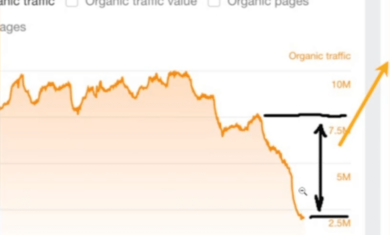You’ll find hashtags on almost every social media platform, and occasionally on some websites. While they can be very helpful in certain cases, they tend to be wildly overused.
First, they almost never help with rankings. If you include the hashtag “#DigitalMarketing” in a post of yours, the only value that brings is if other people search for that specific hashtag on that platform. Do you often search for hashtags? Most people don’t.
Here’s an example of a post with a bunch of hashtags added in, ironically going against the point of the post.

There are a few cases where hashtags can be awesome, like for an event or conference. For example, at the WordCamp Atlanta conference this fall, attendees will be encouraged to use the hashtag #WCATL on social media. You can search that hashtag and find stuff posted from other people at the event. Fantastic!
Google?
Where this gets interesting is when people cram in hashtags to show up more often on a network. Unless people are literally searching that hashtag, there is no value. Further, this is now happening on some websites, with the same result.
Suppose there were two companies that built decks. One included the text:
“We use the latest composite decking material.”
The other:
#decking #material #composite
While both have the same words, Google would clearly favor the first one because it’s likely to be a better result for humans to read.
In fact, Google’s John Mueller said this very thing in a tweet a few weeks ago. When talking about hashtags, Mueller said:
when it comes to web pages in Google Search, hashtags are just words, they have no special meaning or effect.
If you have a solid reason to use a particular hashtag in a social media post, go for it (and make sure they’re CamelCase). In the right context, they can be great. If you have no good reason, though, let your message stay clear by leaving the hashtags out of it.



